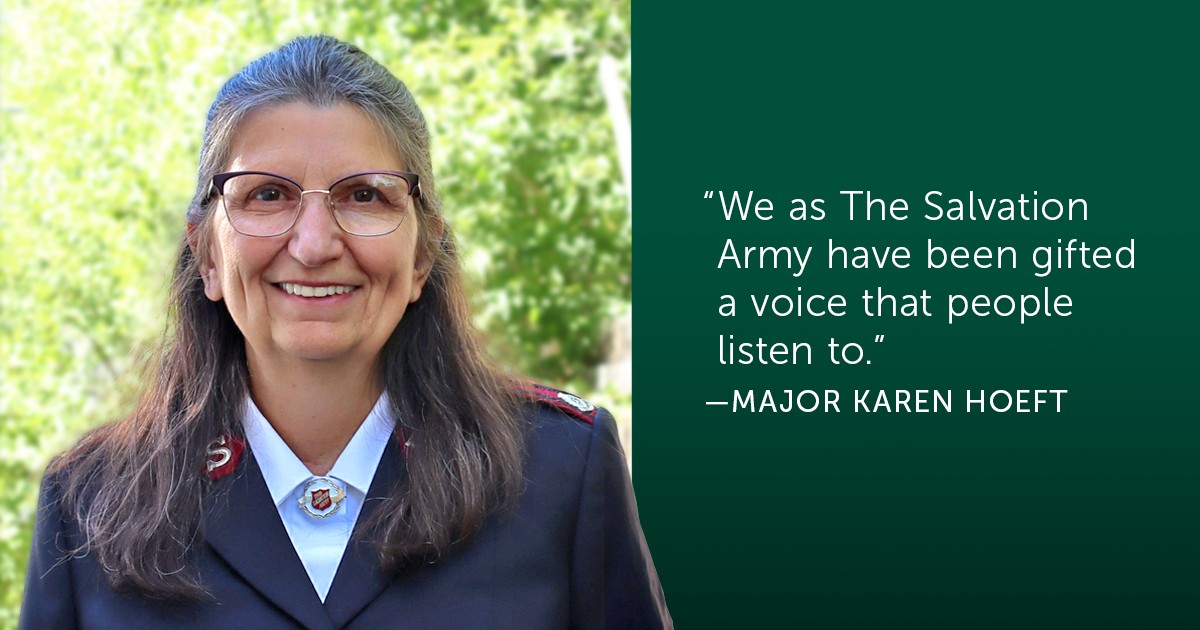The recently elected government of Manitoba, led by Premier Wab Kinew, called a Public Safety Summit in April to address safety issues and the root causes of crime in the province. Among the attendees were representatives from The Salvation Army’s Prairies and Northern Territories Division, Mark Stewart, executive director at the Centre of Hope in Winnipeg, and Major Karen Hoeft, executive director of Regina Waterston Ministries and divisional public affairs officer.
The summit aimed to kick off the development of a comprehensive public safety strategy, bringing together a diverse group of stakeholders, including government officials, social services, Indigenous groups, businesses, legal and law enforcement personnel.
Premier Kinew set the tone for the summit by sharing a story from his time working with the Boys and Girls Club. He recounted how a young girl and her brother regularly attended its food programs, but many years later, Kinew encountered her again within the correctional system. He noted that the system had failed to address her needs, contributing to a cycle that ended in jail. His story underscored many of the discussions at the summit and raised a vital question: how can a public safety strategy be created to address foundational and systemic issues, meet the needs of individuals early on and prevent them from falling into a cycle of crime?
“If you’re going to develop a strategy, you want to look at the system as a whole, not just jail. There is a revolving circle within the jail system that is perpetuated by poverty and systemic discrimination,” explains Major Hoeft, who notes that The Salvation Army is uniquely positioned to intervene at various touchpoints, not limited to correctional ministries and reintegration.
“The Salvation Army meets people at every place along this journey; in our food and community and family services programs, Indigenous ministries, anti-modern slavery and human trafficking, addictions and mental-health programming, housing and shelters, and employment services,” Major Hoeft adds. “We are one of the few groups that see all those pieces.”
During the summit, delegates selected sessions on focus topics, such as mental health, addictions and homelessness; gender-based violence and murdered and missing Indigenous women; access to justice and victim services; and reintegration. In addition, interactive breakout groups in the morning and afternoon encouraged discourse among attendees, where comments and insights were relayed back to the government for consideration in developing the public safety strategy.
“We, as The Salvation Army, have been gifted a voice that people listen to. I was one of the few clergy who were invited to those tables to speak very publicly about our role in this system,” says Major Hoeft. “God has gifted us this voice as The Salvation Army, and we can use it in places such as this to help give a voice to those who don’t have one.”










Major Hoeft summarizes what it means to be a holistic healer in a holistic way to the whole society, and how the Salvation Army continues to be a holistic healer to the entire society. Thank you for sharing.